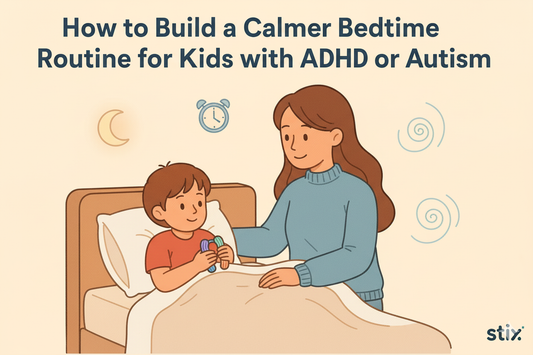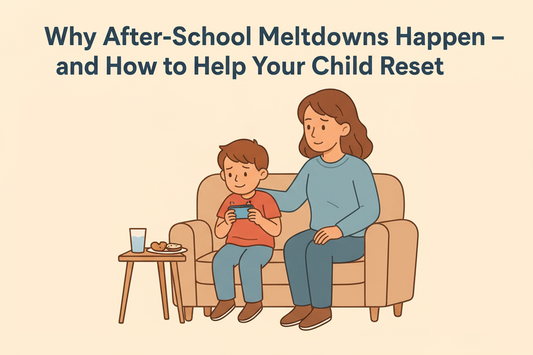Building Resilience in Young Minds: The Importance of Early Intervention

Mental health is a critical component of overall well-being, yet too often, it is addressed only after significant challenges have emerged. At Stix, we believe in the power of early intervention and equipping children with the tools they need to navigate life's challenges.
David Robson’s recent exploration of resilience-building highlights the urgent need for preventive strategies that teach young people how to recognise negative thought patterns and manage their mental health proactively.
Prevention Over Cure
The philosophy behind early intervention mirrors approaches to physical health: addressing issues early can prevent more serious problems down the road. Research shows that many mental health conditions begin to develop during adolescence, with 50% of adult mental health conditions being diagnosed before the age of 14. By teaching mindfulness and emotional regulation skills early, we can help children develop resilience and reduce their risk of long-term distress.
Jessica Schleider, an associate professor at Northwestern University, emphasises the transformative potential of intervening as issues arise. This approach can help young people "pivot toward a more adaptive direction," circumventing challenges before they escalate.
Mindfulness as a Resilience Tool
Mindfulness is a cornerstone of resilience training, offering a way to break free from negative cycles of thought. Studies like those led by Dr. Julieta Galante demonstrate the effectiveness of mindfulness-based cognitive therapy (MBCT) in reducing stress and preventing clinical distress. In a controlled trial, students who participated in mindfulness training maintained stable stress levels during exam periods, unlike their peers who experienced increasing distress.
However, research also highlights the need for mindful implementation. Compulsory mindfulness lessons, such as those in the My Resilience in Adolescence (Myriad) study, showed less impact when students were not engaged. This reinforces the importance of choice and personalisation in mental health interventions—a principle we embrace at Stix Mindfulness by creating engaging, adaptable content that children enjoy playing.
Expanding the Toolkit
Mindfulness is just one of many strategies for building resilience. Other effective approaches include:
- Self-compassion training: Teaching children to approach their flaws and struggles with kindness can reduce self-critical thoughts and feelings of isolation, boosting their emotional resilience.
- Education on neuroplasticity: Helping young people understand that their brains can change and adapt fosters a sense of hope and control over their mental health. See our blog for more details.
- Behavioural activation: Encouraging meaningful activities, such as exercising, nurturing relationships, or exploring creative hobbies, can create positive feedback loops that enhance mood and motivation.
These strategies, whether taught in schools or through online programs like Schleider’s Project Yes, provide practical tools for young people to take charge of their mental well-being.
The Role of Systems and Communities
While individual strategies are crucial, resilience-building doesn’t occur in a vacuum. Family dynamics, societal inequality, and systemic challenges also play a significant role in shaping mental health. For interventions to be most effective, they must be part of a broader effort to create supportive environments.
Our Mission at Stix Mindfulness
At Stix, we are passionate about empowering children with the skills they need to navigate their emotions and build resilience. Our mission aligns with the findings highlighted in Robson’s article: early, personalised intervention is key to helping young minds thrive. By making mindfulness accessible and engaging, we aim to complement other resilience-building strategies and provide children with the tools to face life’s challenges with confidence.
The potential impact of these efforts is profound. By developing mental resilience in children, we can help them realise their full potential and reduce the burden of mental health challenges later in life. Together, we can build a future where mindfulness and emotional well-being are as fundamental as physical health.



